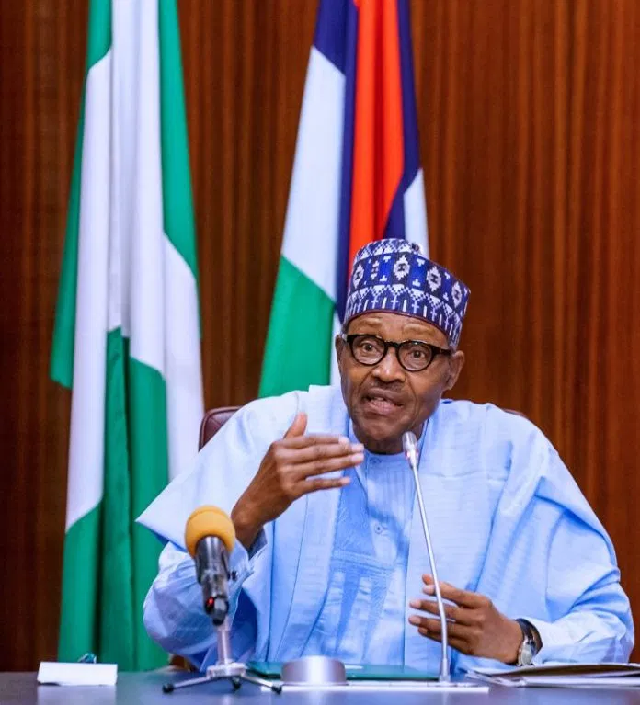President Muhammadu Buhari says close to one billion dollars was stolen from Nigeria “under a previous, undemocratic junta in the 1990s”.
In an article published in Newsweek, a US based publication, the Nigerian leader thanked countries that have returned the looted funds back to Nigeria.
Although Buhari did not mention the name of Sani Abacha directly, it was clear that he was referring to the dictator who presided over the nation between 1993 and 1998.
The president’s article comes three weeks after Nigeria received $311 million Abacha Loot from the United States and the Bailiwick of Jersey.
Previous recoveries have been made from UK and Switzerland which the president made mention of in his article.
After Nigeria recovered the loot from US and Bailiwick of Jersey, Abubakar Malami, attorney-general of the federation, who coordinated repatriation of the funds, had said the money would be used in expediting the construction of the Lagos-Ibadan expressway, Abuja-Kano road, and the Second Niger Bridge.
In his article, Buhari said the recovered funds would be spent on infrastructure.
“In Nigeria, a major global oil producer, we have finally established our first private oil refinery—which is also one of the largest in the world. The Mambilla power plant, finally unlocked for completion after a successful decision by the International Court of Arbitration in Paris earlier this year removed impediments, will electrify the homes of some 10 million of our people,” Buhari wrote.
“And we can now move forward with road, rail and power station construction—in part, under own resources—thanks to close to a billion dollars of funds stolen from the people of Nigeria under a previous, undemocratic junta in the 1990s that have now been returned to our country from the U.S., U.K. and Switzerland.
“That these friendly nations agreed to return these funds after so long is testament to the fact that, thanks to our governance reforms, Nigeria is rightly seen as an increasingly stable and beneficial place to transact and invest.”
He said Nigeria wishes to benefit the world and not forever be in need of aid.
Buhari also cited ways of ensuring sustainable development in Nigeria, and by extension, Africa, considering the economic effects of COVID-19.
The president said Africa is positioned to play a critical role in the remolding of a post-COVID-19 world that centres around manufacturing.
“Some may say it is too early, that the crisis still too deep and the recovery too distant to dwell upon the future. But that is wrong. In times of global crisis it is critical to think of the life after, and how—through adversity—we can refashion the world around us,” he said.
“In this new, post-coronavirus age, Nigeria—and Africa, more broadly—wish to benefit the world, not be a drag on its resources or seemingly forever in need of aid. At last, after years of poor governance, we have the people, the purpose and the political will for this to change.
“What we need now is for the vision of others to match our own. For many lost decades, Africa’s manufacturing moment has been on the launch pad, but never leaving it. But this time, I am convinced, it can be different.”
The president said although no country or continent has a permanent monopoly in manufacturing jobs, Africa is positioned to seize opportunities that would benefit the world.
“Our young population is increasingly well educated; governance reform, while not universal, is growing in strength in most African countries such as my own, where our sustained actions against the seemingly perennial scourge of corruption and malfeasance are well-recognized; and the energy, infrastructure and key natural resources needed to power and supply large-scale manufacturing facilities are in place,” he added.
Source: The Cable












